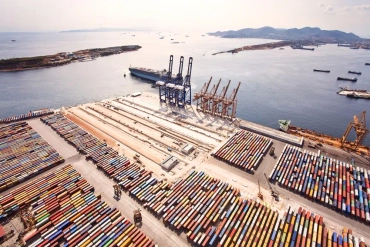
Shipping to Dominican Republic from USA



Being a country in the Americas doesn’t guarantee that the shipping process will be smooth from the US to the Dominican Republic. Rest assured though: it will be as quick as two to four days with express shipping times, five to eight days with economy shipping and slightly longer with longer freight like sea freight.
Five things to know when shipping to Dominican Republic
1. Cafta Agreement matters
The Cafta agreement is an agreement between seven member countries: the united States, El Salvador, Cost Rica, Dominican Republic, Honduras, Guatemala and Nicaragua. Like all the other trade agreements signed between the States and other countries it favors trade between the concerned nations and the US. It removes merchandise fees and tariffs on goods moving between the US and in this case the Dominican republic.
Currently all the tariffs on US industrial exports and consumer goods have been lifted since 2015 and the tariffs on agricultural goods will be removed completely by 2020.
But to be eligible for the CAFTA tariff free treatment all goods must have a country of origin certificate which indicates where the goods are from in terms of where the products are manufactured, grown, or processed. This certificate guarantees the products in question can be legally exported into the Dominican Republic from the US, determines the rate for the export duty, and entitles American business owners to preferential duty in accordance with US customs laws.
2. Use trusted shipping platforms
In the Dominican Republic one is better off using trusted shipping platforms. Not only do they guarantee that the items being shipped will safely arrive at the destination they provide tracking for the packages or containers into interior routes in the Dominican Republic. These popular shipping platforms even offer less time for a shipment to reach the owner which makes them more convenient.
iContainers has physical and operational presence in Dominican Republic, managing from first hand all you operations from and to the United States.
It is important to note however, that in the Dominican Republic Saturdays and Sundays are not considered work days so this may impact the speed of delivery of the shipment. Also public holidays mean no items are delivered countrywide with no exceptions.
3. Have the right Documentation
When shipping to the Dominican republic there are quite a number of documents, apart from the CAFTA certificate of Origin that one needs to append to their shipment. These include: the commercial invoice, Battery Statement and tax document plus shipping labels.
The commercial invoice is the document that declares what a person or corporation is sending to the Dominican Republic. It describes the goods and is needed to determine the duties and taxes applicable to the goods. It’s essential to accompany a certificate of origin. A battery statement is a document that declares any batteries on board the cargo being shipped because one of the Dominican Republic’s popular import on air and ocean freight is devices that utilize batteries. But this only applies to cargo that is on passenger craft. These batteries are dangerous items to enter the Dominican Republic according to IATA guidelines.
4. Restricted items when shipping to Dominican Republic
From the US to the Dominican Republic, there are several items that are specifically not authorized to be shipped into the country. There are prohibited items and restricted items. The prohibited items include:
- Coffee sample and coffee
- Animal skins and products
- Computer parts, accessories, software
- Cotton seeds
- Dangerous goods as defined by IATA
- Communication and telecommunications equipment
- Drugs and prescriptions
- Grain samples
- Military equipment
- Tobacco
- Textile products
- Soil samples
- Seeds and plant products
- Radar equipment
- Shipping spare parts
- Hazardous liquids
- Jewelry
- Foodstuff
These items are specifically prohibited in the Dominican Republic. Those restricted include any items that are seen to be competing with the major products in the domestic economy. For such items one needs to get discretionary import licenses from secretariat of agriculture especially when it comes to the importation of any agricultural products. The licenses help the country to keep tabs on what is coming in to compete with their products and limit such imports.
5. Types of taxes to expect on exports
When exporting to the Dominican republic you can expect two main taxes: Tariff and Luxury (excise). The Tariff tax known as Arancel in Spanish is the basic import tax which should be zero if one has the CAFTA certificate of Origin. If not, the agent will go ahead and calculate the duty due in the local Dominican currency of pesos.
Most of the export goods entering the Dominican Republic are duty free but some are still in the phasing out process.
Excise duty is the consumption tax for luxury imports like perfumes, vehicles and alcoholic beverages and tobacco. These are non essential goods and the luxury tax is not subject to CAFTA regulations. It is typically between 15 and 60 percent, depending on the goods.
Related Articles


